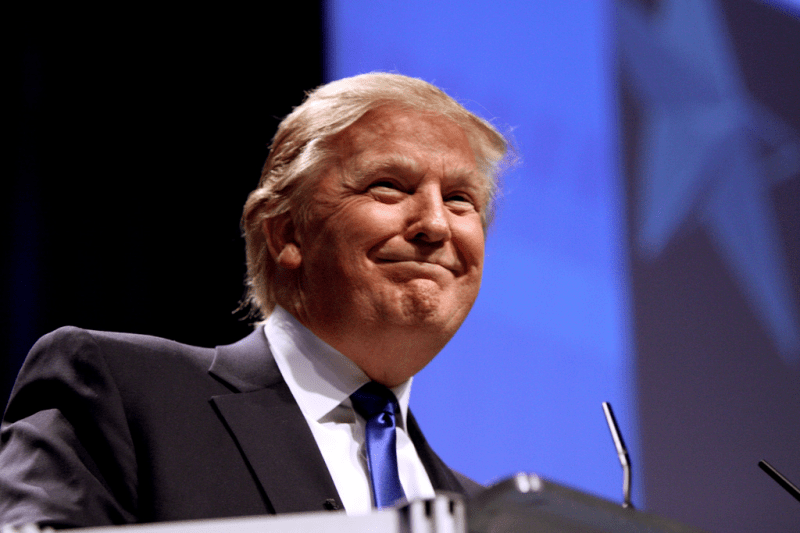Following conservative outcry over protests of right-wing speakers on college campuses, President Donald Trump signed an executive order on Thursday that threatens the denial of federal grants to colleges who do not uphold free speech on their campuses.
The order directs 12 federal agencies that fund university research to make their grants conditional on the protection of free speech, a senior administration official said in a press call.
It also directs the Department of Education to publish information about future earnings and loan repayment rates for “every major and program at every school” and includes a proposal for universities to share the financial risks of student loan debt as an incentive for them to keep their costs down.
Flanked by conservative students, Trump called the executive order the first of a “series of steps to defend students’ rights” from universities he said “restrict free thought and impose total conformity.”
“Taxpayer dollars should not subsidize anti-first amendment institutions, and that’s exactly what they are,” he said.
Private universities such as Stanford — where the federal government sponsors 80 percent of externally funded research projects — will be mandated to adhere to their campus policies on free speech, according to the official, while public universities will be required to follow the First Amendment.
“Freedom of inquiry and the free expression of ideas are fundamental to the mission of the university,” wrote University President Marc Tessier Lavigne and Provost Persis Drell in a Nov. 2017 Notes from the Quad post.
Stanford’s Statement on Academic Freedom further clarifies that University decisions involving faculty and research funding “shall be made without regard to a person’s political, social or other views.”
In a Notes from the Quad post published Thursday, Tessier-Lavigne and Drell wrote that they do not anticipate any changes to Stanford’s policies as a result of the order.
The executive order adds a legal component to the tensions surrounding free speech on college campuses, both on Stanford and around the country. Universities must work to balance freedom of expression — including of racist, Islamophobic and anti-Semitic views — with protecting community members who feel threatened by such ideologies. Meanwhile, Republicans argue that the cancellation of right-leaning speakers violates their First Amendment rights.
In February, conservative activist Hayden Williams was assaulted at the University of California, Berkeley while recruiting for the conservative youth group Turning Point USA (TPUSA).
Two weeks later, Trump invited Williams to the stage of the Conservative Political Action Conference (CPAC), where Trump announced his intent to draft the executive order.
“If [colleges and universities] want our dollars, and we give it to them by the billions, they’ve got to allow people like Hayden and many great young people, and old people, to speak,” Trump said at CPAC.
In a public Facebook post applauding the announcement, the Stanford College Republicans (SCR) wrote that they were “heartened” by Trump’s decision, which they wrote came “after our continuous battles to preserve our first amendment rights from the relentless assault of the unhinged Left.”
Members of SCR’s leadership were also invited to the White House to witness the signing on Thursday, according to a separate post published on Wednesday. However, they wrote that they were unable to attend due to final exams.
The College Republicans’ invitations of conservative speakers have put them into the campus spotlight, most recently over the incendiary right-wing filmmaker and author Dinesh D’Souza. D’Souza, whose Feb. 28 speech centered on what he sees as historical and present racism in the Democratic Party, faced student opposition and difficulties securing event funding in the months leading up to his visit.
Last year’s SCR events involving self-proclaimed Islamophobe Robert Spencer and TPUSA founder Charlie Kirk, as well as the Cardinal Conversations installment featuring controversial social scientist Charles Murray, also sparked protests.
On Thursday, Trump urged students across the political spectrum to listen to what their ideological opponents have to say.
“Maybe you can be changed, and maybe not — I doubt it, but maybe,” he said to the laughter of the conservative students in the room. “But you you never know. And if you can, that’s okay. And you’ll change them too.”
This article has been updated to include Thursday’s Notes from the Quad post.
Contact Erin Woo at erinkwoo ‘at’ stanford.edu.
